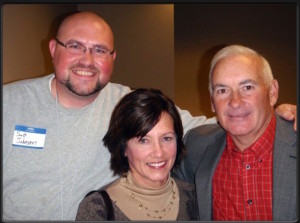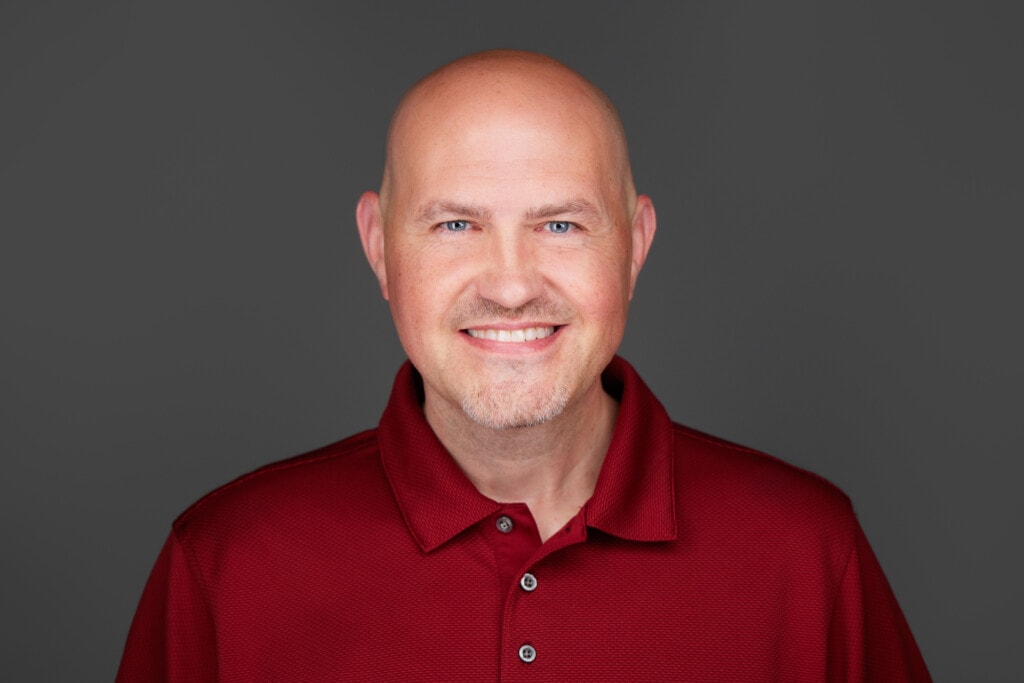I recently attended a local ‘Adults With Type One’ meeting. A couple of volunteers from the JDRF have been organizing this group for the last 18 months, though this was only my second meeting. I’m making it a priority to get to more of these because the two I have attended have been really valuable.
The guests were Tom & Patty Cartier. Their son, Cory, was diagnosed with type 1 diabetes 18 years ago. As parents, they are giving all they have to make sure he is cured and no longer has to wrestle with diabetes. We will all benefit from their hard work and dedication to their son.
Tom & Patty are the people behind the Spring Point Project, a nonprofit organization providing medical grade porcine islet cells to the University of Minnesota’s Schulze Diabetes Institute. There are not enough human islet cells available to supply the demand. Dr. Bernhard Hering at the University of Minnesota Schulze Diabetes Institute has figured out a way to use porcine islet cells, which provides a much greater supply.
Tom gave a short presentation about how they first got involved with the University of Minnesota and talked about all of the people who have contributed to the work that is happening. We are really fortunate to have so many people coming together to push progress here.
There is a historic partnership happening now between the Spring Point Project, The University of Minnesota Shulze Diabetes Institute, The Mayo Clinic, The Minnesota Medical Foundation, The Diabetes Research & Wellness Foundation, The JDRF, and countless others. Tom said that he cannot think of any additional diabetes powerhouses here in Minnesota that he could dream of involving (The Diabetes Research & Wellness Foundation is located near Washington, DC, but they funded the $6.2 million bio-secure facility for the Spring Point Project).
The facility itself has attracted international attention for its state of the art technology and bio-security. Tom told a fun story about meeting a researcher from New Zealand who had come to Minnesota to learn about the project. Their meeting was not scheduled until late in the afternoon. They both had some unexpected free time early in the day and happened to meet each other in the same Caribou Coffee at the Mall of America. Tom said he can’t find his wife in a tiny strip mall in little old Duluth, MN, and here he just happens to bump into this doctor from New Zealand in the largest shopping mall in the entire country.
I talked briefly with Tom before the meeting started. He said that he was glad that I would be sharing my experiences from the meeting because so many people touched by diabetes feel like nothing is happening.
Tom’s main message? Do not give up hope. There is a lot happening around islet cell transplants, and many brilliant people are working to overcome the obstacles that remain.
I hope to learn more about everything that is happening here in Minnesota, and I’ll share everything I learn with all of you. It is exciting to hear about all of this dedication. I hope it translates into progress.
Diabetes Transplant Summit
A couple days after attending this event I received an e-mail from Andrea Stancik from the Diabetes Research & Wellness Foundation in Washington, DC. On Thursday, November 11, 2010 at 6:30 PM there will be a Diabetes Transplant Summit at the Bethesda Marriott (near NIH) in Bethesda Maryland.
The event will feature six islet cell transplant recipients who are now living insulin-free, as well as Dr. Bernhard Hering and Dr. David Sutherland (both from the University of Minnesota Schulze Diabetes Institute).
This is a free event, but reservations are required. More information is in the event flyer below.
Diabetes Transplant Summit Flyer
I would love to attend this event myself, but unfortunately can’t find anyone to sponsor my travel and lodging.
I believe that at least one of the transplant recipients is not too far away from me here in Minneapolis. Maybe I can connect with him and learn more about his story. I’ll work on that.
If anyone is able to attend this event I would love to hear about it.


